The coronavirus has not ravaged the right to protest in Argentina. On Monday thousands used a national holiday to stage a “flag-waving” protest against the centre-left Peronist government.
Argentina is still technically in lockdown. Yet even President Alberto Fernández, upon extending the restrictions until the end of the month, said the notion of a quarantine was now relative because many citizens were already stretching its limits of the lockdown and going out freely. Monday's demonstration that peaked in downtown Buenos Aires was called by those who accuse the national government of using the quarantine as an excuse to curtail civil liberties. The protest was loud and defiant. It was also a health risk, at least if you ask the government. The president called it “an invitation to contagion.”
Who exactly was doing the inviting to rebel against social distancing? Buenos Aires City Mayor Horacio Rodríguez Larreta, a leading member of the centre-right Juntos por el Cambio opposition coalition, made of point of saying he did not support the irate street demonstrations. Rodríguez Larreta has displayed bipartisan civility during the pandemic working together with the president who has called him “a friend.” The mayor has gained from the exposure and polls show that he is performing well.
By not embracing the protest Rodríguez Larreta was, without actually saying it, dismissing it as the work of fringe sectors. No political party formally organised the protest, the third such demonstration against the government. The centre-right coalition includes three major parties: PRO, the Radical Civic Union (UCR) and the Civic Coalition. Former security minister Patricia Bullrich, the formal head of the PRO party (of which Rodríguez Larreta is a member), eagerly attended the demonstration. She said that the vast majority of PRO party members wanted to take part.
Former president Mauricio Macri, PRO's founder, tweeted from Europe he was “proud” of the demonstrators. The protest shows that a sector of the centre-right opposition, headed by Macri and Bullrich, is losing patience with the moderate approach embraced by Rodríguez Larreta. It's not clear if these disagreements will lead to a formal rift in the opposition ahead of next year's midterms though. Macri's popularity has dropped since he lost the presidential elections last year to Fernández. He is an easy target for the current government to bash. Cabinet Chief Santiago Cafiero was quick to fire back via Twitter accusing Macri of irresponsibly supporting a demonstration during a pandemic and of making cuts to the health system during his time in office.
Still the supporters of Monday's protest are convinced that they have rattled the Fernández administration after it sent to Congress a bill to reform the justice system. A new demonstration has been called outside Congress before the end of the month against the reform. The critics claim that changes in the Judiciary are designed to favour Vice-President Cristina Fernández de Kirchner, who is facing a number of corruption trials. The centre-right opposition has formally called for the government to withdraw the justice system reform bill. The ruling Frente de Todos coalition controls the Senate, which is headed by Fernández de Kirchner. But it does not enjoy an outright majority in the lower house Chamber of Deputies. The bill has cleared the committee stage in the Senate. Yet potential allies in the lower house have so far refused to back the reform.
The uproar surrounding the court system reform is another test of the national government's resolve. Fernández recently decided to quash a bill to nationalise the debt-saddled soy crusher Vicentin after it triggered angry protests part-organised by the farming sector. A government-sponsored wealth tax bill has also failed to move an inch in Congress. The anti-government agitators will be emboldened if the justice system bill is not approved in Congress.
Fernández has declared that he will not be deterred by “those who shout.”
The government appeared to regain the initiative last week when it announced a deal to restructure US$65 billion worth of debt. The left-leaning coalition has yet to score a major victory in Congress. The problem for Macri's camp is that at some point the ruling Peronist front could flex its muscle ahead of next year's midterms and call big pro-government demonstrations. Would they turn the tide just ahead of the elections.
Ruling parties don’t generally lose midterm elections two years after taking office (that in part probably explains Rodríguez Larreta's moderation). The national government could choose to pick a fight with Macri. The former president is the subject of a court investigation into allegations that he ordered the AFI state intelligence service to spy on politicians, journalists and trade union leaders during his mandate (2015-2019). Macri has also faced criticism for moving to Europe during the pandemic (to take charge of a largely symbolic position at FIFA). But the protesters will have ultimately won the day if the government fails to push the court system reform through Congress.
Also at issue is the standing of the acting attorney general, Eduardo Casal. Macri made a point during his presidency of forcing out Alejandra Gils Carbó, who then held the post, accusing her of being subservient to Fernández de Kirchner’s government in the process. Now Casal is under similar pressure from the Peronist government, which has nominated a replacement for approval in the Senate.
But will the government's bid to force out a caretaker attorney general also fail? Some politicos who have the president's ear do not back the justice system reform. Former caretaker president Eduardo Duhalde (once a kingmaker in the Peronist party and forced into semi-retirement after losing a power struggle against Kirchnerismo) has said in public that a court system reform can't be approved without first reaching consensus with the opposition. Fernández holds regular meetings with Duhalde who also recommended scrapping Vicentin's nationalisation (something that eventually happened).
The president also seems to be thinking twice and considering his options when it comes to the economy. Economy Minister Martín Guzmán was forced to deny speculation that dollar purchases will be banned outright after Fernández said that he was considering the option hinted at by Deputy Cabinet Chief Cecilia Todesca. Citizens are currently allowed to purchase US$200 a month, but there's growing concern about the Central Bank's dwindling foreign currency reserves (and the growing number of people buying dollars).
The uncertainty (does Todesca have a say in policies over Guzmán?) is bashing the peso in the black market. Calls for a new protest outside Congress show that the agitators will not shut up. Will Rodríguez Larreta's moderation pay off? Macri’s camp, marshalled by Bullrich, appears to think that a major crisis will engulf Fernández's Peronist coalition government well ahead of 2023.







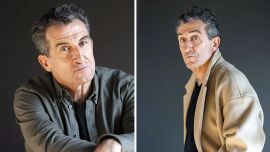

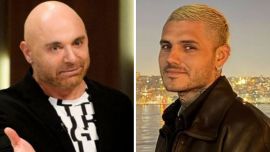






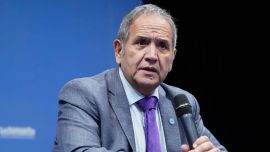


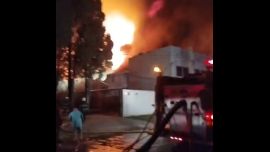
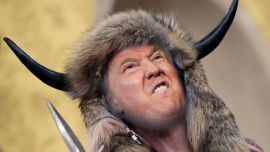
Comments